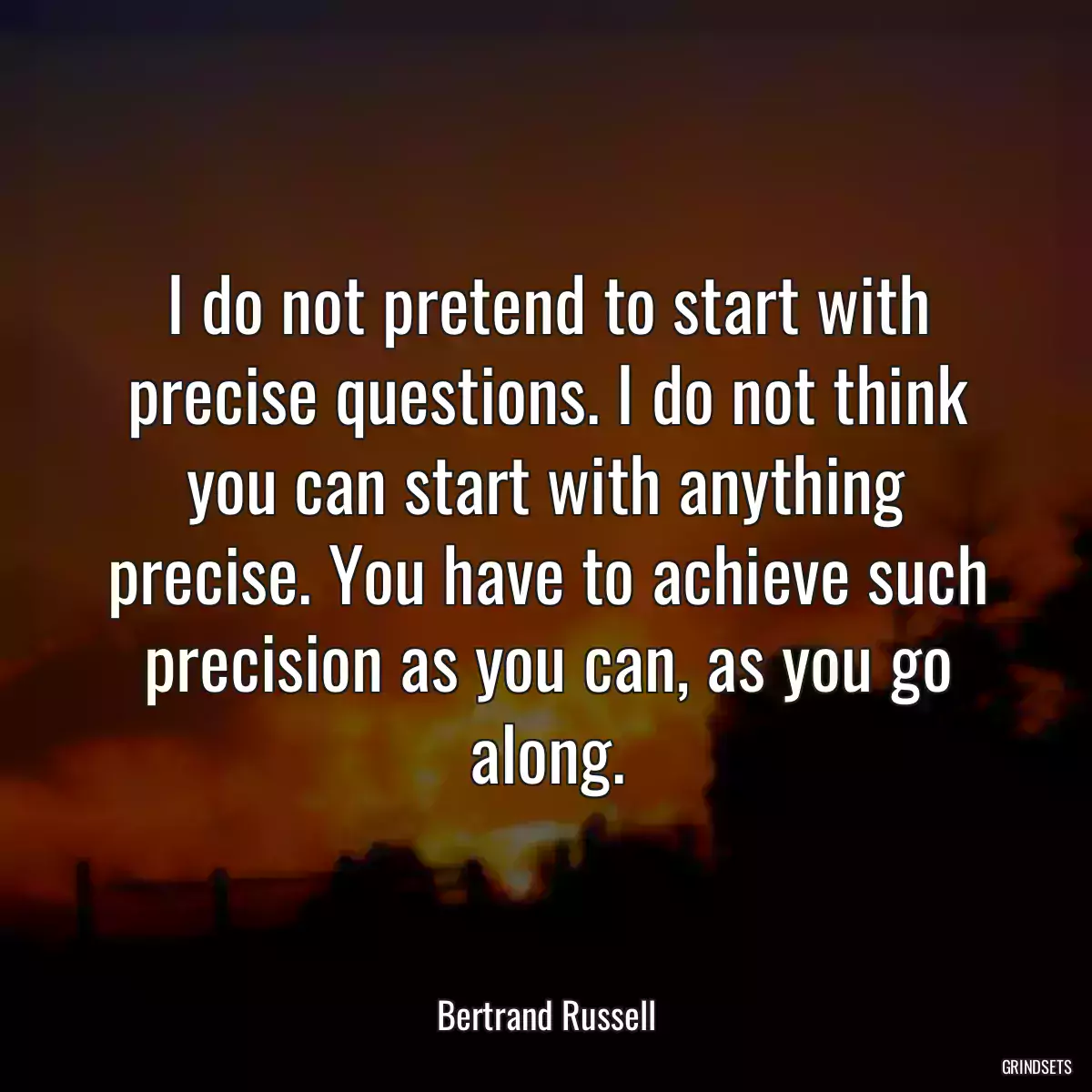
Quotes Bertrand Russell - page 7
Find dozens of Bertrand Russell with images to copy and share.

No man is liberated from fear who dare not see his place in the world as it is; no man can achieve the greatness of which he is capable until he has allowed himself to see his own littleness.
Protestants, from the first, have been distinguished from their opponents by what they do not believe; to throw over one more dogma is, therefore, merely to carry the movement one stage further. Moral fervor is the essence of the matter.
It is because modern education is so seldom inspired by a great hope that it so seldom achieves great results. The wish to preserve the past rather that the hope of creatingfuture dominates the minds of those who control the teaching of the young.
You may also like
All movements go too far.
Happiness is not best achieved by those who seek it directly.
Unless a man has been taught what to do with success after getting it, the achievement of it must inevitably leave him a prey to boredom.
With equal passion I have sought knowledge. I have wished to understand the hearts of men. I have wished to know why the stars shine. And I have tried to apprehend the Pythagorean power by which number holds sway about the flux. A little of this, but not much, I have achieved.
In the visible world, the Milky Way is a tiny fragment; within this fragment, the solar system is an infinitesimal speck, and of this speck our planet is a microscopic dot. On this dot, tiny lumps of impure carbon and water, of complicated structure, with somewhat unusual physical and chemical properties, crawl about for a few years, until they are dissolved again into the elements of which they are compounded.

No great achievement is possible without persistent work.
[Man] ... his origin, his growth, his hopes and fears, his loves and his beliefs are but the outcome of accidental collocations of atoms; that no fire, no heroism, no intensity of thought and feeling can preserve an individual life beyond the grave; that all the labour of the ages, all the devotion, all the inspiration, all the noonday brightness of human genius are destined to extinction in the vast death of the solar system, and that the whole temple of Man's achievement must inevitably be buried beneath the debris of a universe in ruins.
The harm that theology has done is not to create cruel impulses, but to give them the sanction of what professes to be lofty ethic, and to confer an apparently sacred character upon practices which have come down from more ignorant and barbarous times.
When Benjamin Franklin invented the lightning-rod, the clergy, both in England and America, with enthusiastic support of George III, condemned it as an impious attempt to defeat the will of God.
The more we realize our minuteness and our impotence in the face of cosmic forces, the more amazing becomes what human beings have achieved.
If there were in the world today any large number of people who desired their own happiness more than they desired the unhappiness of others, we could have a paradise in a few years.
The philosophies that have been inspired by scientific technique are power philosophies, and tend to regard everything non-human as mere raw material. Ends are no longer considered; only the skillfulness of the process is valued. This also is a form of madness. It is, in our day, the most dangerous form, and the one against which a sane philosophy should provide an antidote
Every sane and sensible and quiet thing we do is absolutely ignored by the press.
You may also like

My own view on religion is . . . It helped in early days to fix the calendar, and . . . to chronicle eclipses . . . These two services I am prepared to acknowledge.